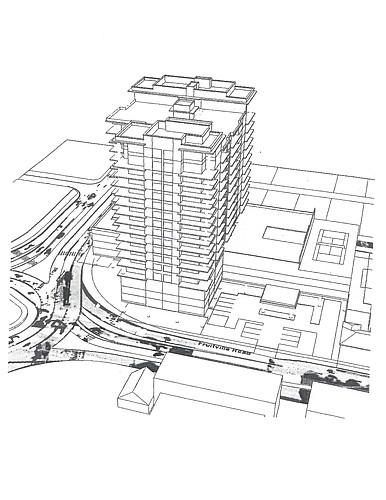- May 4, 2024
-
-
Loading

Loading

A proposed land deal between the city and a private developer would involve swapping less than a quarter-acre of land in total.
Still, both critics and supporters of the agreement believe the exchange could have a significant impact on the future of downtown Sarasota.
On Monday, a divided City Commission voted 3-2 to advance the deal. If finalized, the city would transfer 0.13 acres of land at the northeast corner of U.S. 41 and Tamiami Trail to Palsar Developments Inc. Palsar, which owns the neighboring property at 332 N. Tamiami Trail, would give two strips of land along U.S. 41 and Fruitville Road to the city.
Proponents of the land swap say the exchange is necessary for the city to proceed with plans for a roundabout at U.S. 41 and Fruitville. Without the deal, the city would have to eventually purchase land along both streets to ensure the roundabout could be built to optimal specifications.
“People tell me all the time that the city is becoming unlivable.” — Susan Chapman
Opponents see the deal as enabling out-of-control downtown growth, particularly in the immediate vicinity of that intersection. If the deal is completed, Palsar would likely proceed with plans to build an 18-story, 80-unit condominium complex.
“People tell me all the time that the city is becoming unlivable,” said Commissioner Susan Chapman, one of two commissioners who voted against advancing the deal. “The character is changing from the city they want to live in.”
Although the swap is still not complete, Monday’s vote allows Palsar to submit plans for a development and an application to change its property’s zoning application. If both the site plan and rezone gain commission approval, the land swap would go into effect.
Core Development President Kevin Daves, who is working with Palsar to build on the property, said new plans would focus exclusively on a residential project with about 80 condo units.
The Palsar property is divided between two zoning classifications: A portion is zoned Downtown Edge, and the other Downtown Bayfront. Rezoning the Downtown Edge portion as Downtown Core would allow for a greater residential density than under the current conditions, but Daves said any project would be designed with the existing height limitations in mind.
“From people’s standpoints, they won’t see the difference in the zoning at all except for the density,” Daves said.
Chapman objected to the characterization of the deal as a minor giveaway. The rezoning would allow for twice the density on the Downtown Edge segment of the property. The city would also convey a portion of an alley to the developer, though Palsar would establish a public connection between the alley and Fourth Street on its own land.
Between the Palsar property, Vue Sarasota Bay, Sarasota Bayside and an Embassy Suites, more than 1,500 residential and hotel units are planned for a stretch of U.S. 41 between Boulevard of the Arts and Gulfstream Avenue.
“It’s poor planning,” Chapman said. “We already have transportation gridlock there, and they’re densifying a place that cannot take it.”
“We don’t have the ability to say, ‘You can’t use your property.’” — Liz Alpert
Originally, plans called for an 18-story building on the Palsar site, including a 225-room Marriott Hotel and a 40-unit condo. Those plans, which satisfy the current regulations on the land, were put on hold when it became clear the city would need part of the property to construct a roundabout.
Supporters of the deal said it would secure city interests on land that can be developed either way. The city has called the roundabout an important tool to address long-standing congestion issues along U.S. 41 and Fruitville.
“Without our approval, this developer could build on this lot based on the current zoning,” Commissioner Liz Alpert said. “We don’t have the ability to say, ‘You can’t use your property.’”
Alpert added the increased density in the downtown area could lead to increased walkability and fewer cars on the road.
Chapman wants to have a big-picture conversation about the city’s growth. She thinks certain steps could be taken to better manage development, including removing administrative site plan approval and dividing the planning and building departments.
A wide-ranging discussion hasn’t happened yet, but Chapman is certain it’s unavoidable.
“I’m not the only one talking,” Chapman said. “If people want to dismiss me, when I’m gone, this conversation will keep going.”